
Daloa: The Heart of Ivory Coast's Verdant Landscapes
Daloa, known as the 'City of Antelope', is a vibrant destination nestled in the heart of Côte d'Ivoire. This city is a perfect blend of natural beauty, cultural heritage, and modern comforts. Daloa is surrounded by lush greenery and rolling hills, making it an ideal spot for nature lovers and adventure seekers alike. Visitors to Daloa will be enchanted by its lively market scene, where you can find everything from fresh produce to traditional crafts. The city's central market is a bustling hub that offers an authentic taste of Ivorian culture. Don't miss the chance to try local delicacies and interact with the friendly residents. For those interested in history and culture, Daloa boasts several significant landmarks. The Sacred Forest of Gbeuly is a must-see, offering a glimpse into the spiritual traditions of the local Bété people. Additionally, the city is home to several beautiful churches and mosques, reflecting its rich religious diversity. Daloa's vibrant nightlife and hospitality make it a welcoming destination for tourists. Whether you prefer a quiet evening at a local café or a lively night out, Daloa has something for everyone. The city's warm climate and friendly atmosphere will make you feel right at home.
Local tips in Daloa
- Visit the central market early in the morning for the freshest produce and best selection of crafts.
- Respect local customs when visiting the Sacred Forest of Gbeuly; consider hiring a local guide.
- Try local dishes like 'attieke' and 'kedjenou' at traditional eateries for an authentic culinary experience.
- Carry cash as many small vendors and markets do not accept credit cards.
- Learn a few basic phrases in French, the official language, to help with communication.
Daloa: The Heart of Ivory Coast's Verdant Landscapes
Daloa, known as the 'City of Antelope', is a vibrant destination nestled in the heart of Côte d'Ivoire. This city is a perfect blend of natural beauty, cultural heritage, and modern comforts. Daloa is surrounded by lush greenery and rolling hills, making it an ideal spot for nature lovers and adventure seekers alike. Visitors to Daloa will be enchanted by its lively market scene, where you can find everything from fresh produce to traditional crafts. The city's central market is a bustling hub that offers an authentic taste of Ivorian culture. Don't miss the chance to try local delicacies and interact with the friendly residents. For those interested in history and culture, Daloa boasts several significant landmarks. The Sacred Forest of Gbeuly is a must-see, offering a glimpse into the spiritual traditions of the local Bété people. Additionally, the city is home to several beautiful churches and mosques, reflecting its rich religious diversity. Daloa's vibrant nightlife and hospitality make it a welcoming destination for tourists. Whether you prefer a quiet evening at a local café or a lively night out, Daloa has something for everyone. The city's warm climate and friendly atmosphere will make you feel right at home.
When is the best time to go to Daloa?
Unmissable attractions to see
Marahoué National Park
Explore the breathtaking beauty of Marahoué National Park, a hidden gem in Côte d'Ivoire known for its rich wildlife and stunning landscapes.
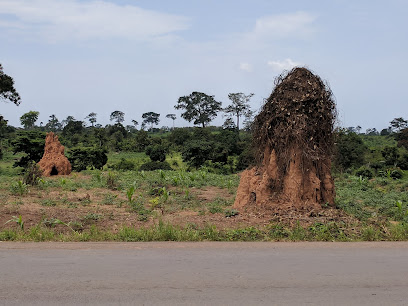
Great Mosque of Daloa
Discover the beauty and spirituality of the Great Mosque of Daloa, a cultural gem in the heart of Ivory Coast's rich heritage.
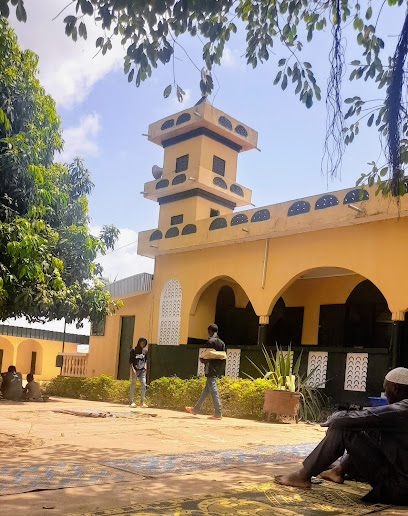
Mosquée, Tazibouo
Explore the serene beauty and cultural richness of Mosquée, Tazibouo, a captivating mosque in Daloa, Côte d'Ivoire, that reflects local traditions.
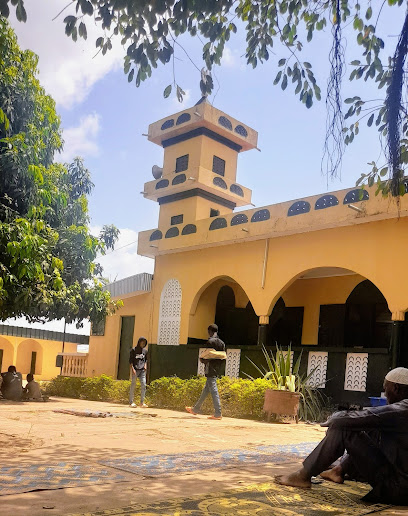
Gbetitapia
Explore Gbetitapia in Balagoua, a charming tourist attraction blending culture, nature, and local warmth in the heart of Côte d'Ivoire.
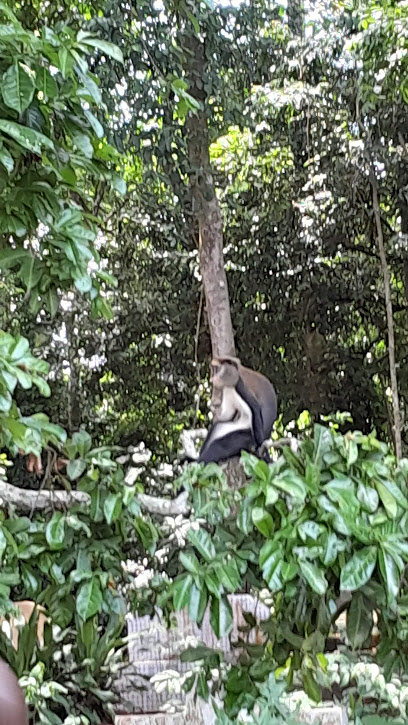
Essential places to dine
Restaurant F1
Experience authentic Ivorian cuisine at Restaurant F1 in Daloa - where every dish tells a story.
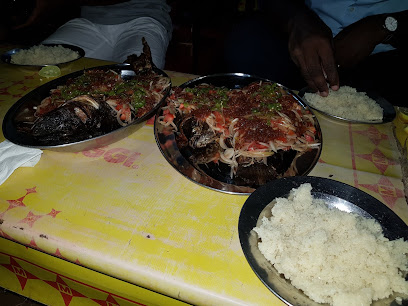
Restaurant le Pam's club daloa
Experience authentic Ivorian cuisine at Restaurant le Pam's Club Daloa – a must-visit dining destination for travelers seeking rich flavors.
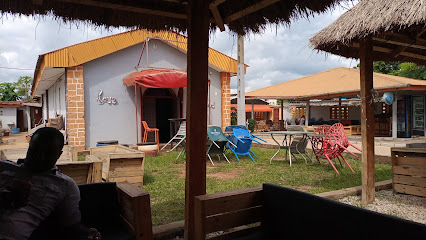
Restaurant Vicky
Experience the flavors of Daloa at Restaurant Vicky - where local cuisine meets international flair in a warm atmosphere.
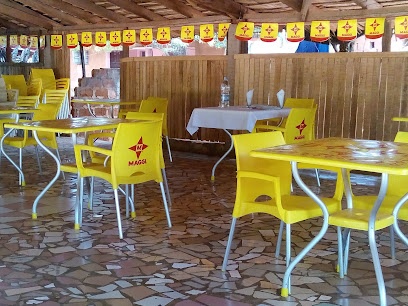
Le 22 Août
Discover authentic Ivorian cuisine at Le 22 Août - a must-visit restaurant in Daloa showcasing local flavors in a warm ambiance.
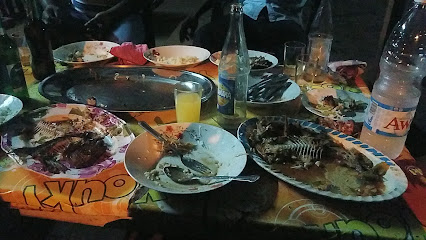
Restaurant Chinois-africain-européen
Discover the unique fusion of Chinese, African, and European cuisines at Restaurant Chinois-Africain-Européen in Daloa.
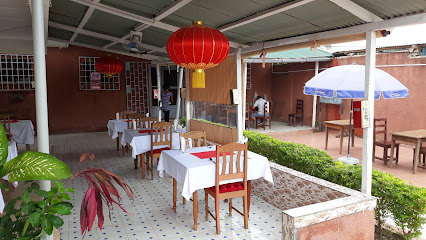
Le biekosseu
Experience authentic Ivorian cuisine at Le Biekosseu in Daloa – a culinary haven for food lovers seeking local flavors.

Restaurant sénégalais
Experience authentic Senegalese cuisine in Daloa at Restaurant Sénégalais – where every meal tells a story.
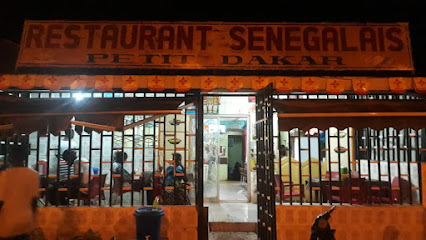
La villa
Experience authentic Ivorian cuisine at La Villa in Daloa – where every meal tells a story.
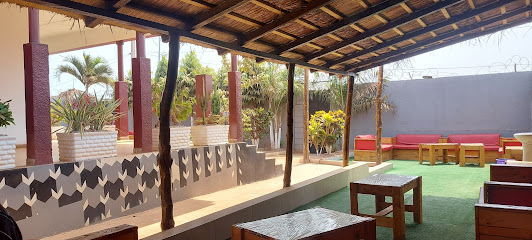
Restaurant Maquis Le Chandelier
Experience the essence of Ivorian cuisine at Restaurant Maquis Le Chandelier in Daloa—where every meal tells a story.

KARUSEL
Experience authentic Ivorian cuisine at Karusel in Daloa, where every dish tells a story and hospitality shines.
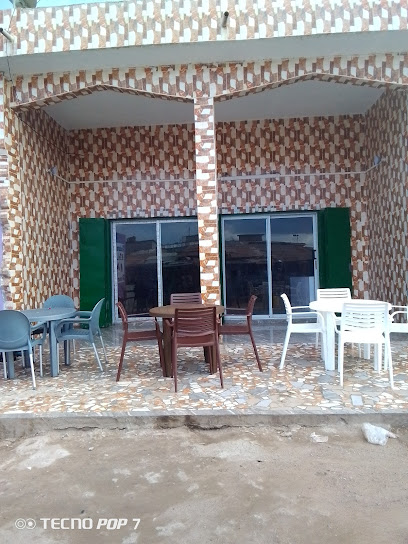
Lebanese Restaurant
Savor authentic Lebanese cuisine in Daloa - a culinary journey through rich flavors and warm hospitality.

Lylydee
Experience authentic Ivorian cuisine at Lylydee - a culinary gem in Daloa offering rich flavors and warm hospitality.
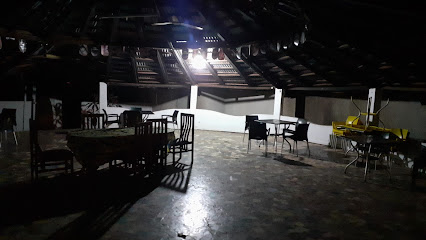
Les Cocotiers Doumbia
Discover the heart of Ivorian cuisine at Les Cocotiers Doumbia in Daloa—where flavor meets affordability.
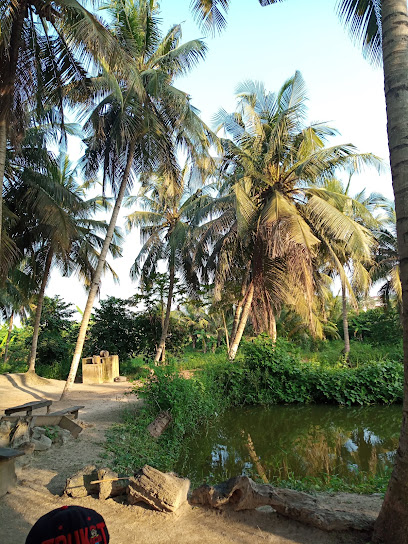
Maquis Resto Le Couloir
Discover authentic Ivorian flavors at Maquis Resto Le Couloir in Daloa – a must-visit restaurant offering delicious local dishes in a warm atmosphere.
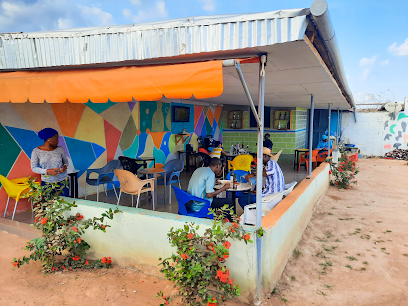
Diamant rose - chez Diane
Experience authentic Ivorian cuisine at Diamant Rose - Chez Diane in Daloa; where tradition meets flavor in every dish.
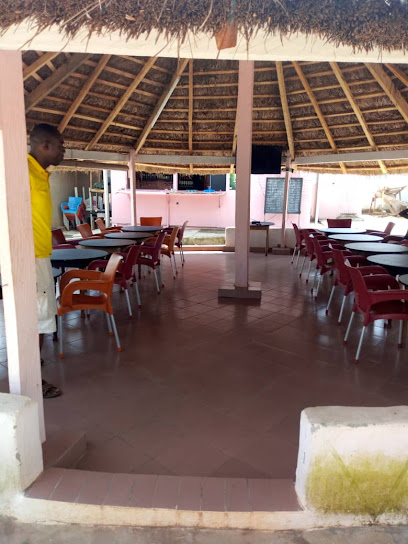
Markets, malls and hidden boutiques
CDCI Daloa
Discover the heart of Daloa at CDCI Daloa, a vibrant supermarket filled with local produce, snacks, and unique Ivorian flavors.
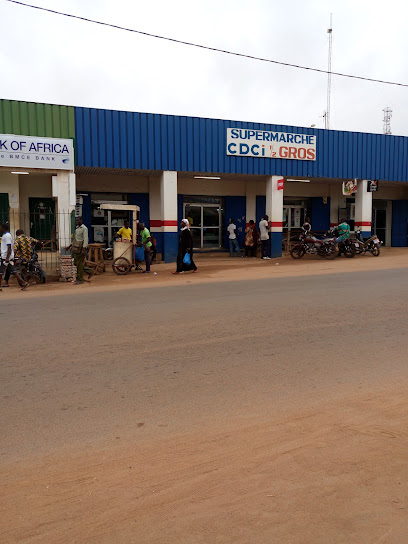
Anoptic
Discover Anoptic in Daloa: a vibrant shopping mall blending local charm with international brands and diverse dining options.
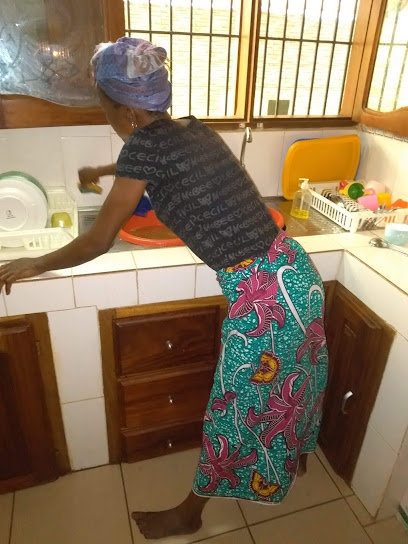
KHENY BOUTIQUE DALOA-CI (KBDCI)
Explore Kheny Boutique Daloa-CI for an authentic Ivorian shopping experience, where fashion meets cultural heritage in the heart of Daloa.
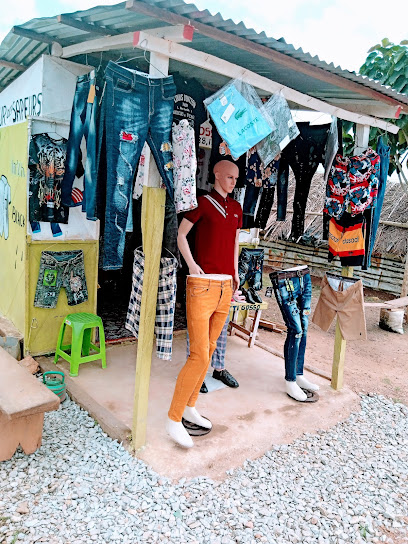
Rado moto
Discover the heart of Daloa at Rado Moto, a vibrant grocery store offering local produce, snacks, and a taste of Ivorian culture.

LE ROI DE LA SAPOLOGIE
Explore the vibrant world of Congolese fashion at Le Roi de la Sapologie, a unique clothing store in Daloa that celebrates culture and creativity.
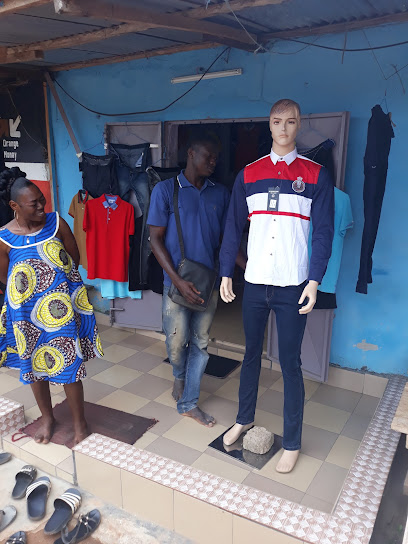
BALOBA BÉNI GAFOU
Discover the vibrant spirit of Daloa at BaloBa Béni Gafou, where local culture meets unique shopping experiences in a welcoming atmosphere.

Kader
Discover Kader in Daloa: A sports card store offering rare collectibles and a glimpse into the local card-collecting culture.

Maria shop
Discover the best work clothes at Maria Shop in Daloa, a local favorite known for quality and style, perfect for tourists and locals alike.
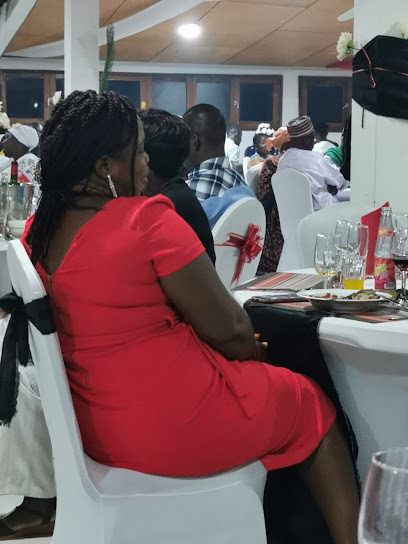
Yaki
Experience the heart of Daloa at Yaki, where shopping meets culture in a vibrant atmosphere filled with local flavors and unique finds.

Oury madina
Explore Oury Madina in Daloa for a rich selection of magazines and a glimpse into Ivorian culture through print media.
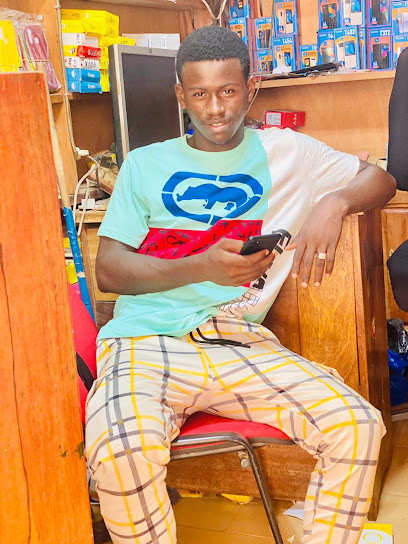
Librairie Du Commerce Daloa
Discover a vast collection of literary treasures at Librairie Du Commerce Daloa, a charming bookstore in the heart of Daloa, Ivory Coast.

Ebenezer France aurevoir
Explore unique home goods and local crafts at Ebenezer France Aurevoir in Daloa, Ivory Coast.

Fadiga boutique
Discover convenience and local flavors at Fadiga Boutique in Daloa, your essential stop for all travel essentials and unique Ivorian products.

RIZ local
Explore RIZ Local in Daloa for authentic Ivorian goods, fresh produce, and unique souvenirs that reflect the vibrant culture of Côte d'Ivoire.
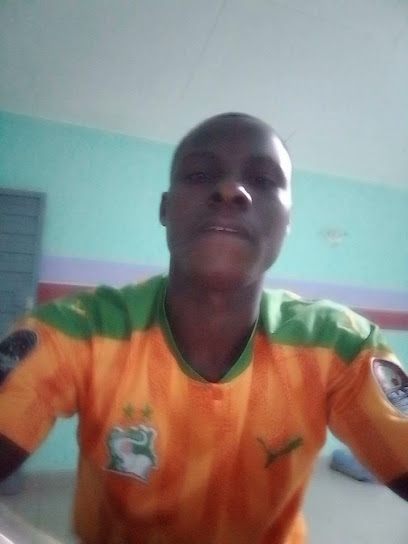
Boutique
Explore Daloa's boutique poster store, a treasure trove of artistic prints showcasing local culture and creativity in a vibrant atmosphere.
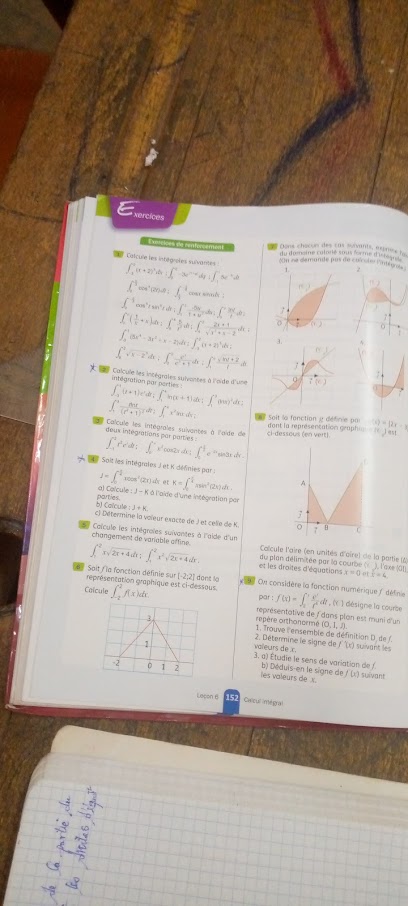
Essential bars & hidden hideouts
MAQUIS-BAR LE VELODROME
Experience the vibrant nightlife and authentic flavors of Daloa at MAQUIS-BAR LE VELODROME, the perfect gathering spot for locals and tourists alike.
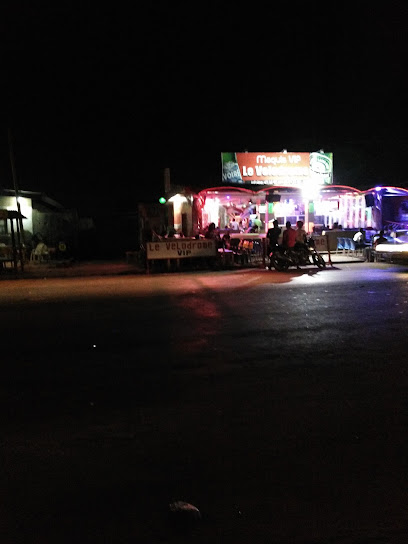
Maquis Moulin rouge
Discover the lively atmosphere of Maquis Moulin Rouge in Daloa, an affordable bar perfect for enjoying local culture and nightlife.
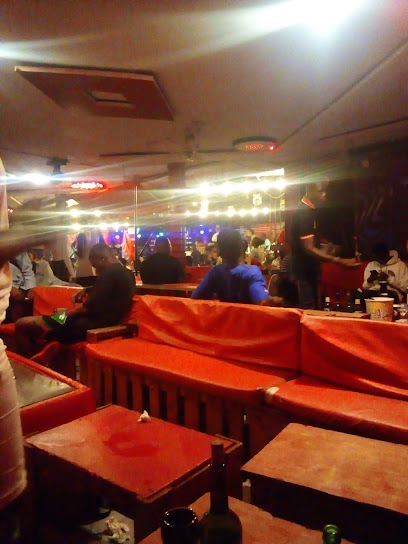
NO STRESS Piano Bar
Discover the lively ambiance of NO STRESS Piano Bar in Daloa, where great drinks, live music, and unforgettable moments await.
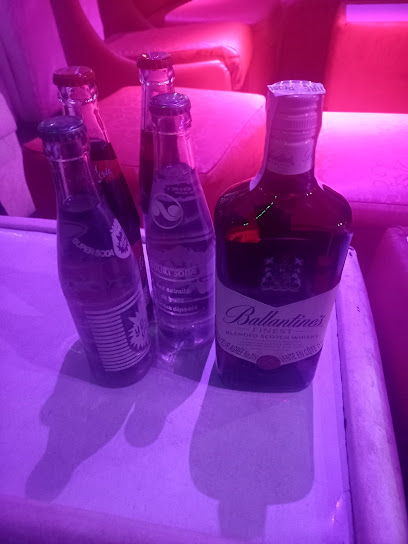
MAQUIS CAVE CHOCO
Experience the lively atmosphere and local flavors at Maquis Cave Choco, a vibrant bar in Daloa that captures the essence of Ivorian nightlife.
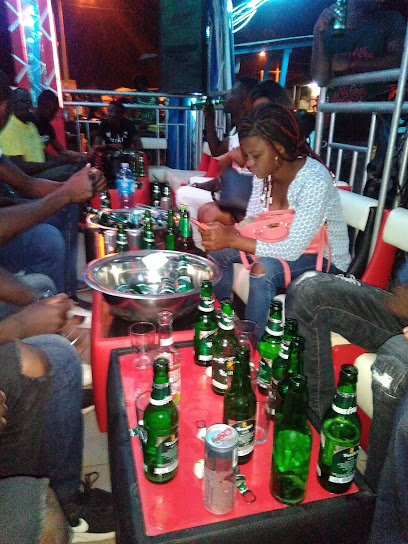
ESPACE LA PALMERAIE
Discover Espace La Palmeraie, the vibrant bar in Daloa, where local flavors meet a lively atmosphere for an unforgettable experience.
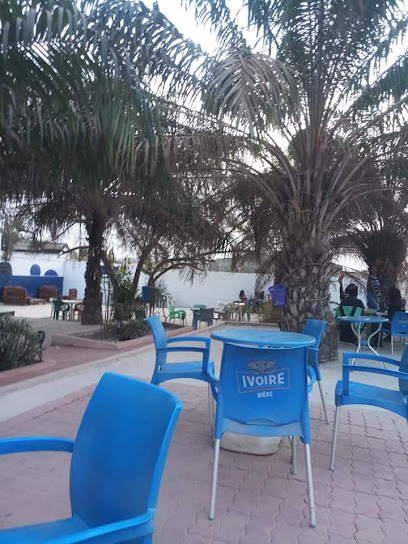
Cubana 12/12 (youyou
Discover the vibrant ambiance of Cubana 12/12 in Daloa, the perfect lounge for relaxation and socializing with a local twist.
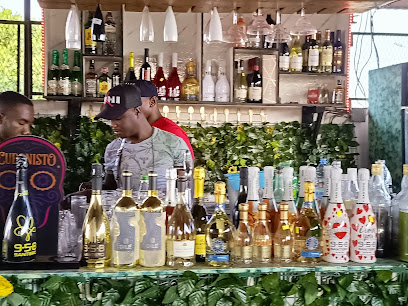
Maquis le Cartel
Discover the heart of Daloa at Maquis le Cartel, where vibrant nightlife meets delicious Ivorian cuisine in a lively bar atmosphere.
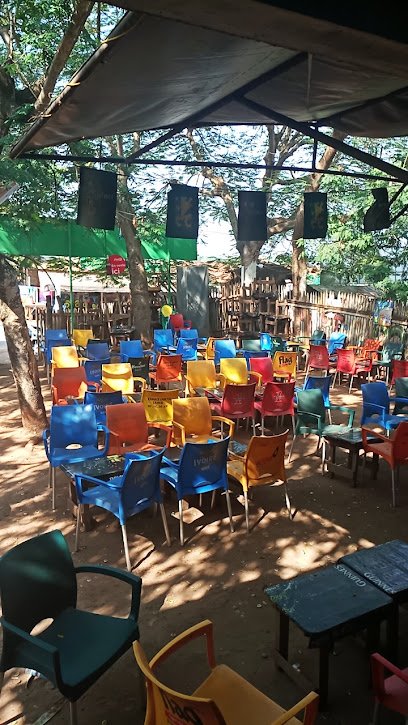
Maquis La Connexion VIP Daloa
Discover the vibrant nightlife at Maquis La Connexion VIP Daloa, where local culture meets delicious cuisine in a lively atmosphere.

After work night club
Unwind and dance the night away at Daloa's After Work Night Club, the perfect bar for nightlife lovers in Côte d'Ivoire.
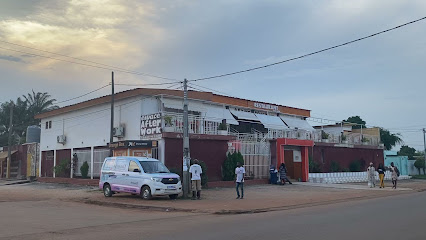
Jack Daniels
Discover the vibrant nightlife of Daloa at Jack Daniels, a lively bar offering a unique blend of local and international drinks.
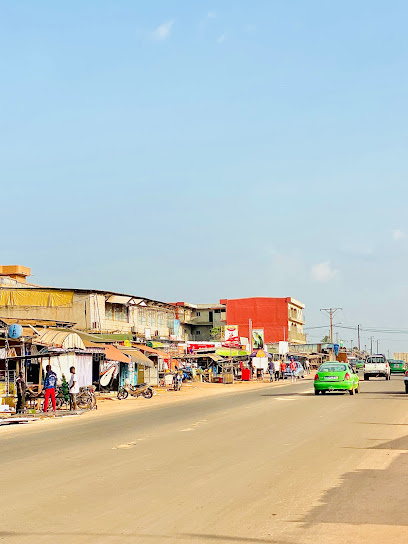
Lion's bar
Experience the vibrant nightlife of Daloa at Lion's Bar, where refreshing drinks meet a lively atmosphere and friendly locals.
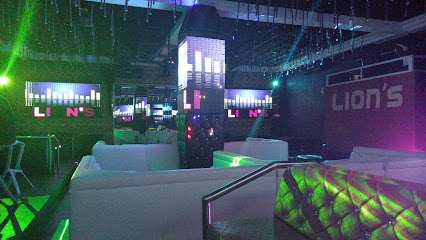
Playstore
Experience the lively ambiance and local flavors at Playstore, Daloa's favorite bar for relaxation and entertainment.
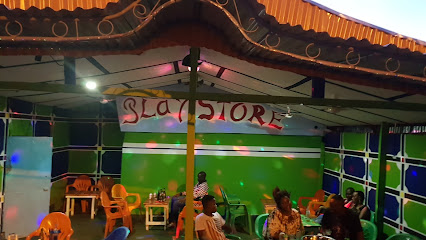
NEW ICE BAR DALOA
Discover the refreshing nightlife at New Ice Bar Daloa, where icy cocktails and a vibrant atmosphere await every visitor.
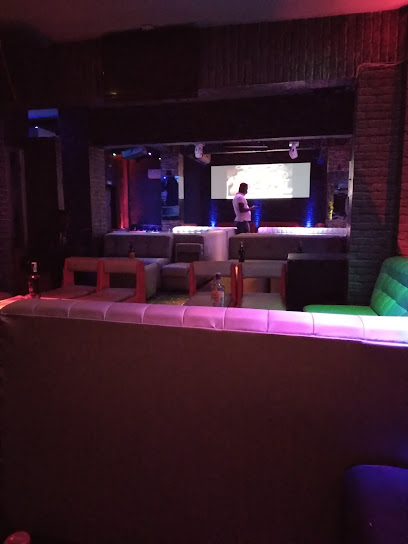
Casino
Daloa Casino - A vibrant bar and gaming experience in Daloa, perfect for an exciting night out and cultural immersion.
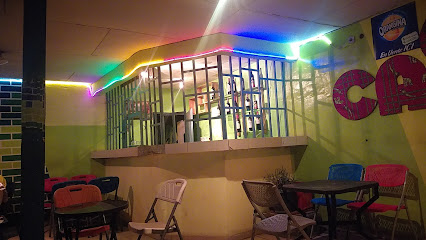
Local Phrases
-
- HelloSalut
[sa-LOO] - GoodbyeAurevoir
[oh-re-VWAHR] - YesOui
[WEE] - NoNon
[NOHN] - Please/You're welcomeS'il vous plaît
[seel voo PLEH] - Thank youMerci
[mehr-SEE] - Excuse me/SorryPardon
[pahr-DOHN] - How are you?Comment ça va?
[koh-MOHN sah VAH] - Fine. And you?Bien. Et toi?
[byen. ay TWAH] - Do you speak English?Parlez-vous anglais?
[par-LEH voo ahn-GLEH] - I don't understandJe ne comprends pas
[zhuh nuh kohm-PRAHN pah]
- HelloSalut
-
- I'd like to see the menu, pleaseJe voudrais voir le menu, s'il vous plaît
[zhuh voo-DREH vwar luh MEH-noo, seel voo PLEH] - I don't eat meatJe ne mange pas de viande
[zhuh nuh MAHNJ pah duh vyahnd] - Cheers!Santé!
[sahn-TAY] - I would like to pay, pleaseJe voudrais payer, s'il vous plaît
[zhuh voo-DREH pay-YEH, seel voo PLEH]
- I'd like to see the menu, pleaseJe voudrais voir le menu, s'il vous plaît
-
- Help!Au secours!
[oh suh-KOOR] - Go away!Va-t'en!
[vah-TAHN] - Call the Police!Appelez la police!
[ah-peh-LAY lah poh-LEES] - Call a doctor!Appelez un médecin!
[ah-peh-LAY uh meh-duh-SAN] - I'm lostJe me suis perdu
[zhuh muh swee pehr-DUU] - I'm illJe suis malade
[zhuh swee mah-LAHD]
- Help!Au secours!
-
- I'd like to buy...Je voudrais acheter...
[zhuh voo-DREH ash-TEH...] - I'm just lookingJe regarde juste
[zhuh ruh-GAHRD zhuhst] - How much is it?Combien ça coûte?
[kohm-BYEN sah koot] - That's too expensiveC'est trop cher
[say troh shair] - Can you lower the price?Pouvez-vous baisser le prix?
[poo-VEH voo BEH-say luh pree]
- I'd like to buy...Je voudrais acheter...
-
- What time is it?Quelle heure est-il?
[KEHL uhr eh-TEEL] - It's one o'clockIl est une heure
[eel eh zun uhr] - Half past (10)Dix heures et demi
[dees uhr ay duh-MEE] - MorningMatin
[mah-TAN] - AfternoonAprès-midi
[ah-PRAY mee-DEE] - EveningSoir
[swahr] - YesterdayHier
[yehr] - TodayAujourd'hui
[oh-zhoor-DWEE] - TomorrowDemain
[duh-MAHN] - 1Un
[uhn] - 2Deux
[duh] - 3Trois
[trwah] - 4Quatre
[KA-truh] - 5Cinq
[sank] - 6Six
[sees] - 7Sept
[sept] - 8Huit
[weet] - 9Neuf
[nurf] - 10Dix
[dees]
- What time is it?Quelle heure est-il?
-
- Where's a/the...?Où est...?
[oo eh...] - What's the address?Quelle est l'adresse?
[KEHL eh la-DRES] - Can you show me (on the map)?Pouvez-vous me montrer (sur la carte)?
[poo-VEH voo muh mohn-TRAY (soor lah KART)] - When's the next (bus)?Quand est le prochain (bus)?
[kahnd eh luh proh-SHAN (boos)] - A ticket (to ....)Un billet (pour ....)
[uhn bee-YAY (poor ....)]
- Where's a/the...?Où est...?
History of Daloa
-
Daloa, located in the central-western part of Côte d'Ivoire, has been inhabited for centuries by the Bété people. The Bété are known for their rich oral traditions, vibrant culture, and intricate wood carvings. The region's fertile soil and abundant natural resources have made it an attractive settlement area long before the arrival of European colonizers.
-
In the late 19th century, Daloa fell under French colonial rule, which significantly shaped its development. The French established administrative outposts and introduced cocoa and coffee cultivation, transforming Daloa into a major agricultural hub. The city’s architecture still bears traces of French influence, with colonial-era buildings standing as a reminder of this period.
-
Côte d'Ivoire gained independence from France in 1960, and Daloa quickly emerged as a key player in the country's economy. The city's strategic location made it a central point for the transportation of agricultural goods. During the 1960s and 1970s, Daloa experienced rapid growth and modernization, with the construction of schools, hospitals, and other infrastructure.
-
Daloa was significantly affected by the two Ivorian Civil Wars (2002-2007 and 2010-2011). The city saw battles and unrest, leading to displacement and economic disruption. Many of Daloa's residents were forced to flee, and the local economy suffered. However, the resilience of the people has been a testament to their strength and determination to rebuild.
-
Daloa is renowned for its rich cultural heritage, particularly the Bété traditional dances and festivals. The city hosts various cultural events, such as the Fêtes des Masques (Festival of Masks), which attracts visitors from all over the country. These events showcase traditional music, dance, and mask-making, preserving the cultural identity of the Bété people.
-
Today, Daloa is a bustling city with a diverse population. It remains an agricultural powerhouse, primarily known for its cocoa and coffee production. The city has also invested in education and healthcare, with numerous schools and hospitals serving the community. Daloa continues to balance its rich cultural traditions with modern development, making it a unique destination in Côte d'Ivoire.
Daloa Essentials
-
Daloa is located in the west-central region of Cote d'Ivoire. The nearest international airport is Félix-Houphouët-Boigny International Airport in Abidjan, approximately 400 kilometers away. From Abidjan, you can take a domestic flight to Daloa Airport, which is about 5 kilometers from the city center. Alternatively, you can take a bus or a shared taxi from Abidjan to Daloa, which typically takes around 6 to 8 hours by road.
-
Daloa has a variety of transportation options. Taxis are readily available and the most common mode of transport within the city. Motorbike taxis, known as 'moto-taxis,' are also popular for short distances. For intercity travel, buses and shared taxis are available and relatively inexpensive. Renting a car is an option, but be prepared for varying road conditions.
-
The official currency in Cote d'Ivoire is the West African CFA franc (XOF). Credit cards are accepted in some hotels, restaurants, and larger shops, but it is advisable to carry cash, especially for smaller establishments and local markets. ATMs are available in Daloa, but it's wise to withdraw sufficient cash in larger cities like Abidjan, just in case.
-
Daloa is generally safe for tourists, but it’s important to take standard precautions. Avoid walking alone at night and be cautious in less crowded areas. Neighborhoods like 'Quartier Commerce' and 'Quartier Kennedy' have higher crime rates, particularly petty theft targeting tourists. Always keep an eye on your belongings and avoid displaying valuables openly.
-
In case of emergency, dial 170 for police assistance and 185 for medical emergencies. The main hospital in Daloa is the Centre Hospitalier Régional (CHR) Daloa. It is advisable to have travel insurance that covers medical emergencies. For minor health issues, there are pharmacies where you can purchase over-the-counter medications.
-
Fashion: Do dress modestly, especially when visiting religious sites. Avoid wearing overly revealing clothing. Religion: Do respect local customs and traditions. Always ask for permission before taking photos in religious sites. Public Transport: Do be respectful and give up your seat to elderly passengers. Don’t eat or drink on public transport. Greetings: Do greet people with a handshake and a smile. A slight bow of the head is also a sign of respect. Eating & Drinking: Do try local delicacies and accept food offerings graciously. Don’t refuse hospitality, as it is considered impolite.
-
To experience Daloa like a local, visit the local markets such as 'Marché de Daloa' where you can buy fresh produce and traditional Ivorian goods. Engage with locals, as they are often friendly and willing to share stories about the city’s history and culture. Don’t miss visiting the 'Parc National de la Marahoué' for a glimpse of local wildlife and natural beauty. For a unique experience, attend a traditional dance performance or a local festival to immerse yourself in the vibrant culture.
Nearby Cities to Daloa
-
Things To Do in Yamoussoukro
-
Things To Do in Sassandra
-
Things To Do in San-Pédro
-
Things To Do in Sanniquellie
-
Things To Do in Ganta
-
Things To Do in Abidjan
-
Things To Do in Gbarnga
-
Things To Do in Voinjama
-
Things To Do in Buchanan
-
Things To Do in Kakata
-
Things To Do in Sunyani
-
Things To Do in Monrovia
-
Things To Do in Bobo-Dioulasso
-
Things To Do in Kumasi
-
Things To Do in Kenema






